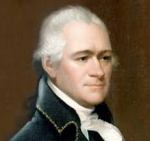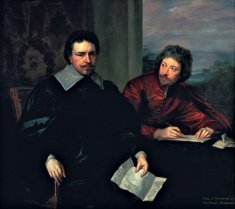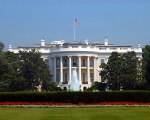“The Big Spenders in Congress are at it again…. They’ve been inventing their miracle cures for which there are no known diseases.”
President Ronald Reagan, Remarks to Ohio Veterans’ Organization Columbus, October 4, 1982
“No Money shall be drawn from the Treasury, but in Consequence of Appropriations made by Law; and a regular Statement and Account of the Receipts and Expenditures of all public Money shall be published from time to time.”
US Constitution, Article I, Section 9, Clause 7
This clause is known as the “Appropriations Clause”. The Appropriation Clause is essential to Congress’ “power of the purse” or the power to spend money.
Appropriation is defined as “an act of a legislature authorizing money to be paid from the treasury for a specific purpose”.
The authority for Congress to spend money comes from Article 1, Section 8, Clause 1. Please see “The Power of Congress to Tax”. https://barbbaran.wordpress.com/2013/04/12/power-of-congress-to-tax/
At the Constitutional Convention, the Appropriations Clause first appeared as a proposed division of authority between the House and Senate. The original proposal stated that all money bills had to originate in the House, and the senate could not amend or alter the bills. The final result of compromise was that the Senate could amend money bills and that the Legislative Branch appropriates all money by law. This process is explained in Article 1, Section 7, Clause 2. Please See “How Does a Bill Become a Law? https://barbbaran.wordpress.com/2013/04/06/how-does-a-bill-become-a-law/
The Appropriations Clause is also important in the separation of powers. It limits the Executive branch’s access to the treasury funds.
In Federalist 58, James Madison explains,
“The House of Representatives cannot only refuse, but they alone can propose the supplies requisite for the support of the government. They, in a word, hold the purse—that powerful instrument by which we behold, in the history of the British Constitution, an infant and humble representation of the people gradually enlarging the sphere of its activity and importance, and finally reducing, as far as it seems to have wished, all the overgrown prerogatives of the other branches of government. This power over the purse may, in fact, be regarded as the most complete and effectual weapon with which any constitution can arm the immediate representatives of the people, for obtaining a redress of every grievance, and for carrying into effect every just and salutary measure.”
Justice Joseph Story, in Commentaries on the Constitution of the United States, explains the separation of powers further, “to preserve in full vigor the constitutional barrier between each department…that each should possess equally…the means of self-protection.”
He further wrote:
“And the [legislature] has, and must have, a controlling influence over the executive power, since it holds at its own command all the resources by which a chief magistrate could make himself formidable. It possesses the power over the purse of the nation and the property of the people. It can grant or withhold supplies; it can levy or withdraw taxes; it can unnerve the power of the sword by striking down the arm that wields it.”
The second part of the clause states that an account of expenditures appropriated by Congress must be published periodically.
In Article 1, Section 9, Clause 7, we the people deny everyone in Government the right to spend money, which has not been authorized by law.
We the people receive assurance that our tax money is being spent for authorized purposes and an opportunity from time to time to see how our money is being spent.
References:
US Constitution
http://www.heritage.org/constitution/#!/articles/1/essays/67/appropriations-clause
Online Dictionary
Findlay, Bruce Allyn and Findlay, Esther Blair. Your Rugged Constitution. Stanford: Stanford University Press, 1950
Hannaford, Peter. The Quotable Ronald Reagan. Washington, DC: Regnery Press, 1998

























